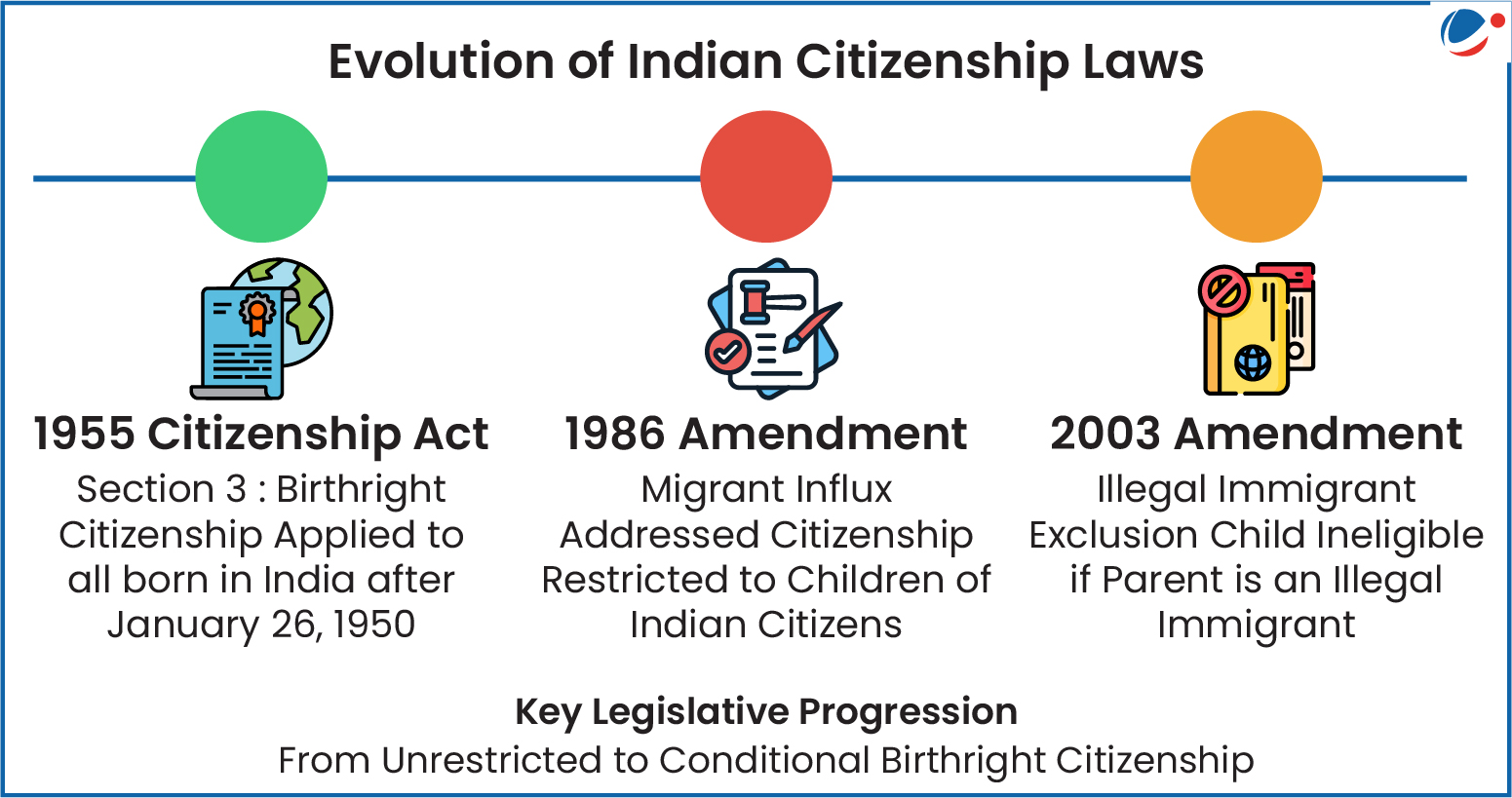The executive order, titled “Protecting the Meaning and Value of American Citizenship,” revokes birthright citizenship, regardless of their parents’ immigration status.
About Birthright Citizenship in the US

- Definition: Birthright citizenship is a provision under the 14th Amendment (1868) of the US constitution that grants automatic citizenship to anyone born on US soil.
- Historical Context: Upheld by the US Supreme Court in United States v. Wong Kim Ark (1898), even for children of non-citizen parents.
Implications for India with End of U.S. Birthright Citizenship
- H-1B Visa Holders: Children born to Indian professionals on H-1B visas, or those awaiting Green Cards (allows a person to live and work in US permanently), will no longer qualify for automatic citizenship.
- H-1B Visa: A temporary visa that lets employers hire foreign professionals for jobs requiring a bachelor’s degree.
- Temporary Visa Holders: Indian students (one of the largest groups of international students) and families on temporary visas will face difficulties securing citizenship for their US-born children.
- Impact on Immigration: The policy would discourage Indian professionals, students, etc, from migrating to the US, pushing them toward immigration-friendly countries like Canada and Australia.
- Curb “Birth Tourism”: A practice of women traveling to the US specifically to give birth so their children can claim citizenship.





